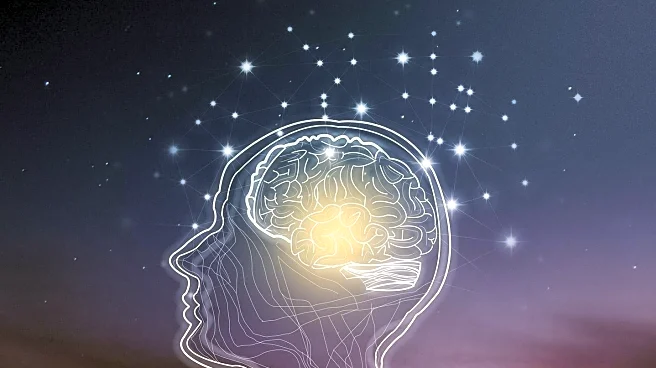What's Happening?
Researchers from Martin Luther University Halle-Wittenberg and the University of Münster have published a study in Translational Psychiatry showing that cognitive behavioral therapy (CBT) can lead to measurable changes in brain structure. The study involved 30 patients with acute depression, who underwent 20 sessions of CBT. MRI scans revealed significant increases in gray matter volume in the left amygdala and right anterior hippocampus, areas associated with emotion processing. This finding provides a biomarker for the effect of psychotherapy on brain structure, similar to changes observed with medication or electrostimulation.
Why It's Important?
This study underscores the potential of psychotherapy as an effective treatment for depression, offering a non-pharmacological option that can lead to structural brain changes. With around 280 million people suffering from severe depression globally, the findings could influence treatment approaches, encouraging the integration of CBT in therapeutic practices. The research highlights the importance of personalized treatment plans, as different patients may respond better to psychotherapy compared to medication or other interventions.
What's Next?
The study may prompt further research into the long-term effects of CBT on brain structure and its efficacy compared to other treatments. Healthcare providers might consider incorporating more psychotherapy options into treatment plans for depression, potentially leading to broader acceptance and insurance coverage for such therapies.
Beyond the Headlines
The study raises questions about the accessibility and affordability of psychotherapy, as well as the need for trained professionals to deliver effective CBT. It also highlights the importance of understanding individual patient needs and the potential for combining different treatment modalities for optimal outcomes.










